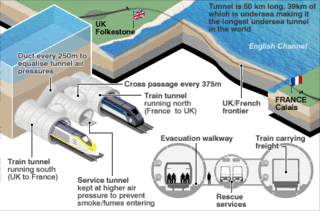I’m currently making a new video in Xtranormal – this time in Spanish. Here’s the script, with English translation:
¡Hola!
HiBuena día. ¿En qué puedo ayudarle?
Hello, How can I help you?Busco trabajo.
I’m looking for work.¿Qué tipo de trabajo?
What kind of work?Como payaso y cirujano de cerebro.
As a clown and brain surgeon.¿En serio? ¿Me está vacilando?
Really!? Are you pulling my leg?¡No, lo digo en serio!
No, I’m serious!¿Tiene Usted algun título y experiencia?
Do you have any qualifications and experience?¿Sí, por supuesto! Estudié medicina en Madrid, y tengo cerebro y zapatos muy grandes.
Yes, of course! I studied medicine in Madrid, I have a brain, and very large shoes.Bueno. ¿Cómo piensa combinar la bufonada y la cirugía?
Ok. How do you plan to combine clownery and surgery?Bueno, podría ayudar a la gente a relajarse antes de la cirugía con mi bufonada.
Well, I could help people to relax before surgery with my clowning.¡Buena idea! Lamentablemente no tenemos ofertas de empleo para la cirugía del cerebro en el momento.
Good idea! Unfortunately we don’t have any jobs for brain surgeons at the moment.¡Qué lástima! ¿Tienen ofertas de empleo para los payasos?
What a pity! Do you have any jobs for clowns?Lo siento, no tenemos. Pero ¿ha contempla la posibilidad de entrar en la política?
Sorry, we don’t, but have you considered going into politics?¿La política? Pero no tengo ningun experiencia.
Politics!? But I have no experience.¡No importa! Es como hacer el payaso, pero con menos de tortas de crema.
It doesn’t matter! It’s like clowning, but with fewer custard piesBueno. ¡Eso parece ideal! No me gusta las tortas de crema. ¿Quando puedo comencar?
Ok. That sounds ideal! I don’t like custard pies anyway. When can I start?Hay una elección en unos pocos meses.
There’s an election in a few months.Tal vez voy a intentarlo.
Maybe I’ll give it a try.¡Buena suerte!
Good luck!Muchas gracias.
Thanks a lot.¡Adíos!
Goodbye.¡Adíos!
Goodbye.
If you spot any errors or have suggestions for how to make this funnier or sillier, just let me know.
I make these videos mainly for fun, but the process of writing in other languages also helps me to improve my knowledge of them. Making them funny and/or silly makes the vocabulary and grammatical constructions more memorable for me.
It is now possible to up load audio to Xtranormal as well as using the text-to-speech facility, so I could use recordings in any language I know, and plan to do so.
[addendum] The video is now finished and available on YouTube. I’ve even worked out how to add speech bubbles and subtitles.


